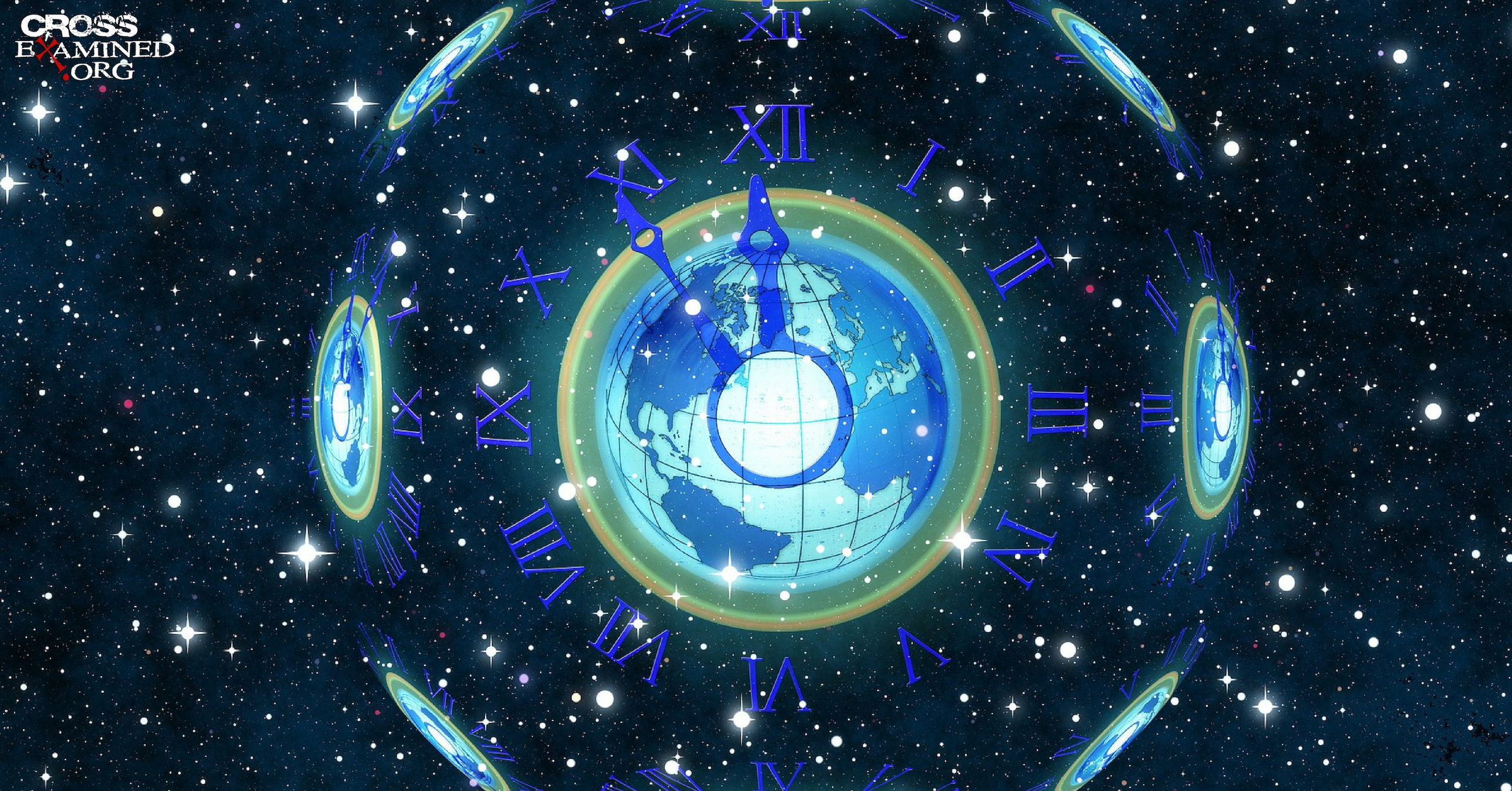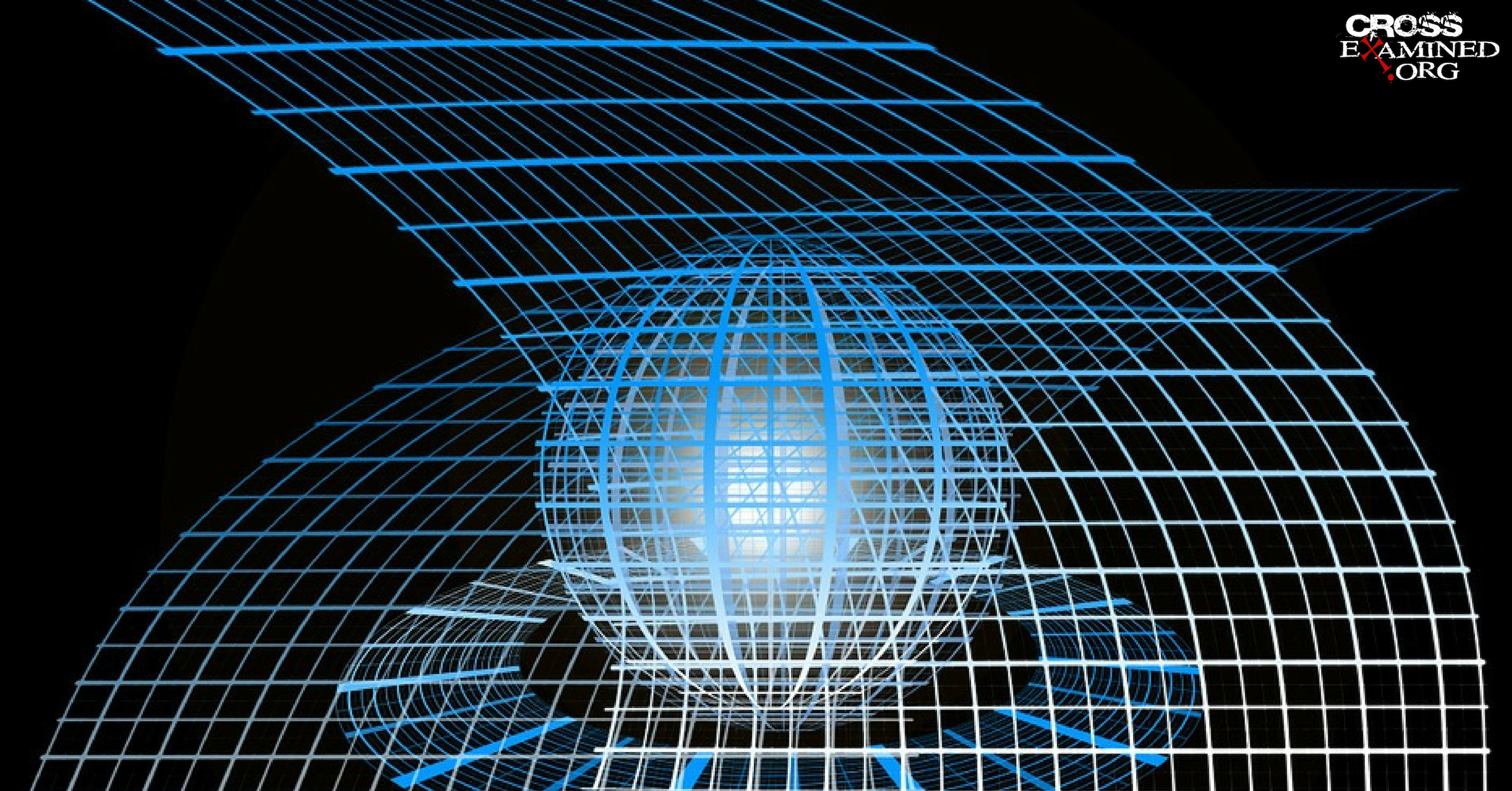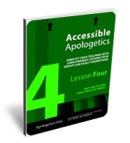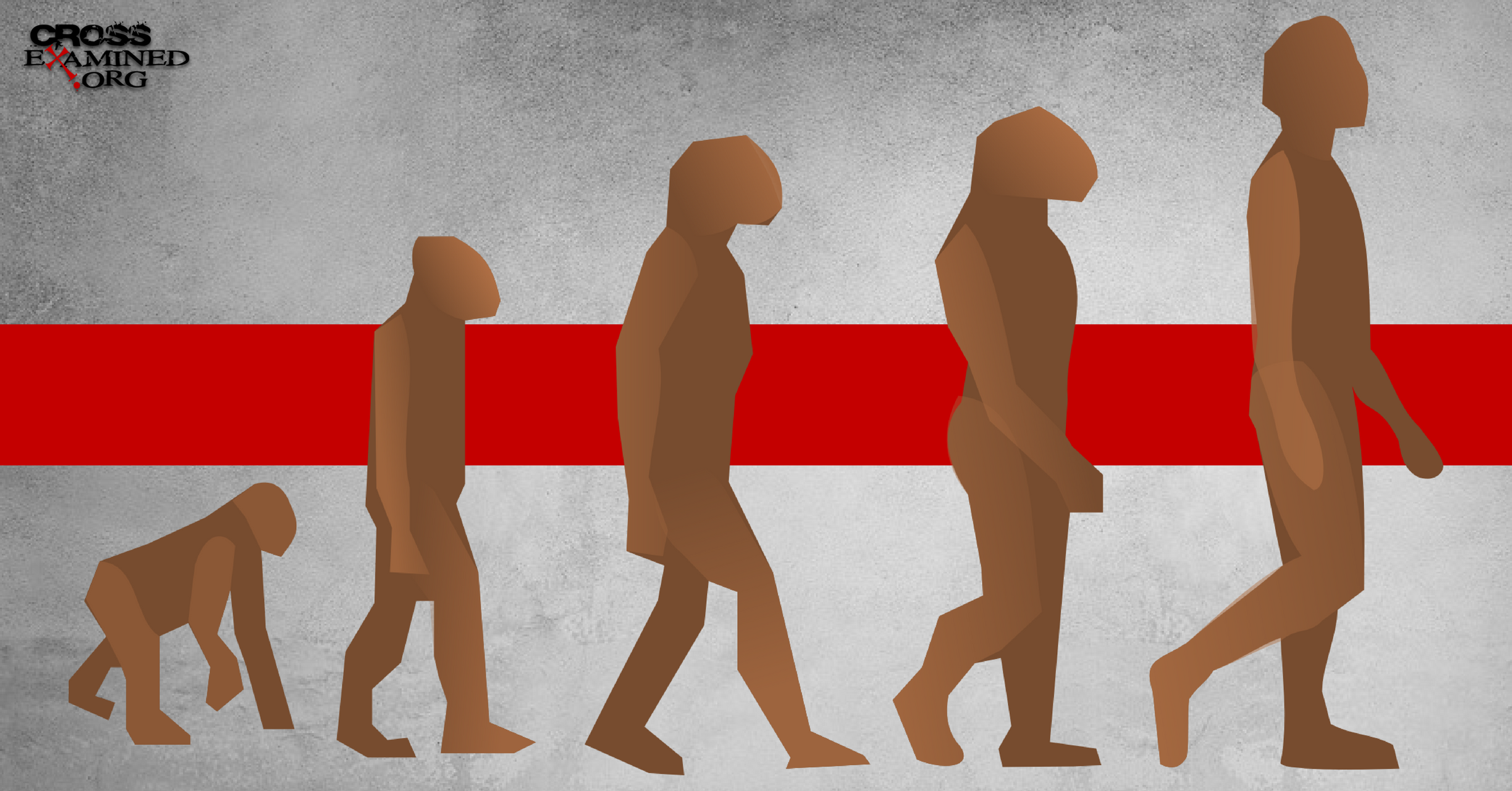By Maverick Christian
INTRODUCTION
For those of you who are philosophically unfamiliar, naturalism is the belief that only nature is real and that the supernatural does not exist. The Evolutionary Argument Against Naturalism (EAAN), put forward by Christian philosopher Alvin Plantinga, holds that the conjunction of naturalism and evolution is self-defeating. This is not an argument against evolution, but rather an argument against naturalism (since, if naturalism is true, then evolution is the “only game in town,” and if the conjunction of naturalism and evolution is self-defeating, so much the worse for naturalism).
To define some terms and abbreviations, a defeater is (roughly) something that eliminates or weakens rational grounds for accepting a belief; in the context of argument, the defeater is such that one is rationally compelled to abandon the defeated belief (i.e., one does not believe it, either by (1) remaining agnostic about it, or (2) believing it to be false). Suppose, for example, that I arrive in a town and see what appears to be a barn fifty yards away. I later learn that last week some crank put up fake barns all over the area, along with the real ones, and that these fake barns are indistinguishable from real barns when viewed from a distance of thirty yards or more. I now have a defeater for my belief that I had seen a barn. I realize that I might have seen a barn, but I do not have sufficient grounds to continue accepting the belief. The rational thing for me to do is to abandon my belief that I had seen a barn. Suppose I later learn that the eccentric removed all the fake granaries before my arrival. Then I would have something that nullifies the defeater’s defeating force, i.e., a defeater of defeaters. The EAAN claims that the naturalist who believes in evolution acquires a defeater for his belief in evolution + naturalism. Commonly used abbreviations for the EAAN:
F = our cognitive faculties are reliable.
N = Naturalism is true.
E = Evolution is true.
Pr(F/N&E) = the Probability of F given N and E.
That is, Pr(F/N&E) refers to the probability that (our cognitive faculties are reliable given naturalism and evolution), part of the argument is as follows:
- Pr(F/N&E) is low.
- The person who believes in N&E (naturalism and evolution) and sees that Pr(F/N&E) is low has a defeater for F.
- Anyone who has a defeater for F has a defeater for almost any other belief including (if he believed it) N&E.
- Therefore, the N&E devotee (at least the devotee who is aware of the truth of premise 1) has a self-defeating belief.
Let’s call premise (1) the Defeat Thesis and let’s call premise (2) the Probability Thesis. Denying the truth of evolution is not the best option for the naturalist, so if the above evolutionary argument against naturalism is sound, the naturalist is in serious trouble. But defeaters themselves can be defeated, as in the case of the barn scenario I described, so is it possible that a defeater of defeaters is present for the naturalist here? Couldn’t the naturalist run a series of tests to confirm his cognitive reliability? Not quite, since the naturalist relies on his cognitive faculties even to believe that there is such a thing as scientists and cognitive tests, plus the belief that he has done those tests, and if he has a defeater for F, he is pretty much screwed. So the defeater mentioned in premise (2) would be an invincible defeater.
Next, I will refer to the two fundamental premises.
THE PROBABILITY THESIS
Why do you think Pr(F/N&E) is low? Normally you might think that true beliefs help you survive. That’s certainly the case if beliefs are causally relevant to behavior (e.g., I think this plant is poisonous, so I’m not going to eat it). But if the truth of our beliefs isn’t so causally relevant, then that factor will be invisible to natural selection. The content of our beliefs could be anything, true or not, and it wouldn’t affect our behavior. Whether the belief content is 2+2=4, 2+2=67, or 2+2=4.096 would make no difference to how we behave. If that’s true, then Pr(F/N&E) is low.
The kind of naturalism being discussed here assumes that human beings are purely nonphysical creatures without minds or souls. In my Plantinga Argument Against Materialism article I described Alvin Plantinga’s argument for the idea that if materialism about human beings were true (i.e., if we were purely physical beings), then the propositional content of our beliefs (e.g., there is a cold soda in the fridge ) would not be causally relevant. So for a better understanding of how the semantic content of a belief is causally relevant to behavior go to The Epistemological Argument Against Materialism.
So why would it matter if N&E implies that the semantic content of our beliefs is causally irrelevant? To avoid bias against our own species, let’s not think about ourselves, but about alien creatures whose physiology is radically different from ours. N&E is true for these aliens, so the semantic content of their beliefs is causally irrelevant. Then the N&E of the electrochemical reactions that cause these aliens’ behavior could generate any semantic content (e.g., 2+2=1 or grass is air), without the content affecting behavior. The semantic content could even be “junk” beliefs that bear no relation to the external environment, such as in dreams, and it would still not affect behavior. It would still be possible that electrochemical reactions that produce advantageous behavior also generate mostly true beliefs, but given the causal irrelevance of semantic content, it would seem like the most serendipitous of coincidences, if that were to happen. Therefore, in the absence of further relevant data, the likelihood that his cognitive abilities are reliable (given N&E) is low.
One might object that while the probability of cognitive reliability is low given only N&E, we know more relevant data P such that Pr(F/N&E&P) is high, e.g. we know that, for physiology, the link between content and behavior is favorable for our species, such that we act as if semantic content influences our behavior in a way worthy of a rational agent. Perhaps that is true, but that is an objection to the Defeatist Thesis and not the Probability Thesis. For now we are only concerned with justifying that Pr(F/N&E) is low. In any case, let FA stand for the cognitive faculties of aliens being reliable . I have argued that Pr(FA/N&E) is true for the following argument:
- If Pr(FA/N&E) is low, then Pr(F/N&E) is low.
- Pr (FA/N&E) is low.
- Therefore, Pr(F/N&E) is low.
In light of the fact that in N&E, the semantic content of a belief is causally irrelevant, the probability of FA given N&E is low. Similarly, what is true for aliens is true for us (remember, we are basically taking into account the probability of F in just N&E). But suppose that, even after reading the rest of my post on Plantinga’s argument against materialism, one is still not convinced that a belief does things in virtue of its NF properties and not its semantic content. Is there another way to argue for the Probability Thesis?
The DNFA scenario
For the sake of having a label handy, let’s call semantic epiphenomenalism (SE) the view that a belief does things in virtue of its NF properties rather than its semantic content, as some philosophers call it. It seems to be the case that Pr(F/N&E&SE) is low, but what if SE were false? What if, despite Plantinga’s argument against materialism, one is still convinced that the semantic content of a belief is causally relevant? In that case there is another thought experiment that I’ll call the “DNFA scenario.”
Suppose a mad scientist creates an artificial neurophysiological device (ANPD), a multi-tentacled device implanted near Smith’s brain stem that controls both his thoughts and behavior. The mad scientist can remotely control the ANPD’s electrochemical processes to vary Smith’s beliefs and behavior in countless different ways. For example, Smith is dehydrated, and the mad scientist, wanting his victim to be healthy, uses the ANPD to force Smith to drink some water while simultaneously making him believe “I’m thirsty and water will quench my thirst.” The second time Smith is dehydrated, the mad scientist uses a different electrochemical setting to make Smith believe ” Drinking this water will grant me superpowers in the afterlife” while simultaneously producing the same drinking behavior (and suppose this belief is false). In this case, the electrochemical process that produces the mental-enhancing behavior also produces a false belief. The DNFA can even produce “junk” semantic beliefs that have little to do with the coerced behavior, such as making Bill believe that “grass is air” or that ” 1+1=3 ” while simultaneously making Smith drink the water. The third time Smith gets dehydrated the mad scientist does just that, causing Smith to drink the water while also making him believe that “1+1=3.” Indeed, the mad scientist can associate almost any belief with the same drinking behavior . Even if a person’s semantic content is only NF properties, it is how the NF properties interact with the rest of the system that determines the behavior. An artificial neurophysiological device is not only metaphysically possible, but also appears to be physically possible (given that beliefs and behavior can be produced by electrochemical means).
The DNFA scenario shows that false beliefs can be associated with mental state-enhancing behavior, to the point where false beliefs are garbage beliefs (beliefs that are extremely unrelated to the external environment, as in dreams). But if the artificial neurophysiology scenario is physically possible, then it is at least metaphysically possible for the natural neurophysiology of an evolved being to have the same “disconnect” between semantics and behavior. Even if it were possible that the semantic content of a belief is causally relevant (one might think that semantic content is just the NF properties), the DNFA scenario shows that for any given behavior B, there are innumerable semantic contents C – even of C extremely unrelated to the external environment – that could be associated with B. Like ES, this would still allow for the possibility that beliefs and behaviors are linked in a “rational” way (e.g., I think a plant is poisonous, so I won’t eat it) but like ES it would still be possible for even junk beliefs to be associated with advantageous behavior. Someone might argue that the relation between semantic content and behavior is in this sense functionally equivalent to ES, despite the falsity of ES. Call this view semantic pseudo-epiphenomenalism (SEP).
Two key claims of the PES are (1) ES is false; (2) even though ES is false, it is still possible for even rubbish beliefs to be associated with advantageous behaviour – and the DNFA scenario shows that this is in fact physically possible (since the device is physically possible). Thus the DNFA scenario shows that if ES is not true, then PES is. Both ES and PES allow for a large divorce between beliefs and behaviour (again, think of the case where grass is air is associated with Smith drinking clean water). On second thought, it is very easy to imagine a moving set of atoms creating advantageous behaviour while producing beliefs unrelated to the external world, and it is easy to take for granted our more fortunate truth-leading relation between belief and behaviour, since it is so familiar to us.
To again avoid bias towards our own species, they don’t think of us, but of alien creatures from another world on which they have N&E&PES. While it’s easy to assume that beliefs and behaviors would be linked in a “rational” way (e.g. a man believing that water will quench his thirst so he drinks it), there’s nothing in N&E&ES or N&E&PES to believe that such a link would occur in aliens (whose physiology, we can assume, differs from ours), since both ES and ESP easily allow junk beliefs to be connected with favorable behavior. Because ESP is functionally equivalent to ES, and given the enormous variety of diverse beliefs that might be associated with a given behavior (“bachelors are married”, “grass is air”, “2+2=1”, “2+2=2”, “2+2=3”, etc.) an evolving race of alien creatures suffering from ESP has a low probability of evolving reliable cognitive faculties as if they were affected by ES. In sum, naturalism implies that either ES or ESP is true, and since Pr(FA/N&E&ES) and Pr(FA/N&E&PES) are low/inscrutable, it follows that Pr(FA/N&E) is also low/inscrutable. But then if Pr(FA/N&E) is low/inscrutable, then Pr(F/N&E) is also low/inscrutable (since, as with the aliens, we are considering the possibility of F in N&E without further information).
An objection
In response, one might propose the following rebuttal. Although naturalism inevitably involves an ES-type problem—whether via semantic epiphenomenalism or semantic pseudo-epiphenomenalism—the mental-state-enhancing neurophysiological properties that are most likely to be selected for by natural selection (say, a certain neurophysiology is selectable just in case it is most likely to be selected for by natural selection) happen to be the ones that are conducive to truth. The DNFA scenario is obviously engineered and produces certain behavioral belief pairs that are not likely to obtain in human physiology in real time. The most efficient and selectable way for neurophysiology to produce advantageous behavior also produces true beliefs. Thus, although the ES-type situation exists for semantics and behavior, luckily for us the physiological relation between semantics and behavior is such that true beliefs usually obtain.
All of that may be true, but as an objection against the Probability Thesis it falls short. A major problem is that even if a favorable physiological relationship between beliefs and behaviors obtains for our species, such a favorable relationship does not seem to be knowable from N&E&ES alone. It cannot be known from N&E&ES alone, nor from N&E&SPE alone. To illustrate the problem, consider a planet with aliens whose neurophysiology differs radically from ours (though we don’t know much else about this). On N&E&ES where the semantic content of a belief is causally irrelevant, it would still be possible for mostly true beliefs to be associated with advantageous behavior, but since the semantic content of their beliefs could be anything and it wouldn’t matter, it would be the most serendipitous of coincidences, if it ever happened. Similarly in N&E&PES where even garbage beliefs can be associated with advantageous behavior, it would still be possible that alien electrochemical reactions that cause advantageous behavior also generate mostly true beliefs, but it would be a rather fortuitous coincidence if that were to happen, given the enormous variety of beliefs that can be associated with a given behavior (as the DNFA scenario suggests) and given that we have no additional relevant information about alien physiology.
One could grant that the probability of F given N&E (only) is low, but also claim that we know some proposition P (perhaps that the physiological relation between belief and behavior happens to be benevolent for our species) such that Pr(F/N&E&P) is high, and we have excellent reasons to believe that P is true. Therefore, Pr(F/N&E) being low does not defeat F for the evolutionary naturalist. However, this would be an objection against the defeater thesis rather than the probability thesis, so it will not be discussed in this section. Can the Defeatist Thesis withstand this objection? For that matter, why accept the Defeatist Thesis in the first place?
THE THESIS OF THE DEFEATER
Scenarios S1A through S5A below are features of the XX drug, a medication that renders cognitive abilities unreliable for a high percentage of people who take it, although those affected are unable to detect their cognitive unreliability. A small percentage of people who have a gene called the “blocking gene” produce a protein that blocks the reliability-destroying effects of the XX drugs, but no one else is immune to the drug. Some scenarios refer to the XX mutation, a mutation that causes the body to naturally produce and release the XX drug into the body shortly after birth.
Scenario ( S1A) : I know that my friend Sam has taken the drug XX, a medication that renders cognitive faculties unreliable for a high percentage of people who take it, although those affected are unable to detect its cognitive unreliability. I know, however, that Sam later comes to believe that extensive testing has established its cognitive reliability, although I have no independent reason to think that this occurred. And since Sam obtained his belief about cognitive testing long after he took the drug XX, I conclude that the belief was probably produced by unreliable cognitive faculties, and I have a defeater of my belief that Sam’s cognitive faculties are reliable.
Scenario (S2A) : I, as a three-year-old, ingest drug XX, being aware of its possible effects. I am not aware of any relevant differences that distinguish my case from Sam’s. Sam’s case, acquiring drug XX, and ingesting drug XX are my earliest memories. Some years after the incident I come to believe that I have undergone extensive testing establishing my cognitive reliability, but since this belief was long after I ingested drug XX, I come to the conclusion that my belief was probably the product of unreliable cognitive faculties and that I have a defeater for my belief that my cognitive faculties are reliable.
Scenario ( S3A): I have been injected with drug XX by a doctor shortly after I was born (the doctor mistakenly thought he had injected me with an important vaccine), and I come to believe the following. At first I believe that I am the product of some kind of evolution that makes the reliability of my cognitive faculties highly probable. I am a renowned scientist who has built a machine that I know is capable of reliably detecting when drug XX has entered a person’s bloodstream. I administer the test to myself, and the machine reports that drug XX entered my bloodstream at the time I was born. I later come to believe that I have gone through extensive testing establishing my cognitive reliability, but since this belief was long after drug XX entered my bloodstream, I come to the conclusion that I have a defeater of my belief that my cognitive faculties are reliable.
Scenario ( S4A): Natural evolution gave me the XX mutation and I come to believe the following. I am a renowned scientist who has built a machine that I know is capable of reliably detecting when the XX drug has entered a person’s bloodstream. For most of my life I have believed that I am the product of some sort of evolution that makes my cognitive reliability highly probable. After a few years, I administer the test and the machine reports that the XX drug entered my bloodstream at birth. I later come to believe that I have gone through extensive testing establishing my cognitive reliability, but since this belief was long after the XX drug entered my bloodstream, I come to the conclusion that I have a defeater of my belief that my cognitive abilities are reliable.
Scenario (S5A) : The only humanoid species on my planet is homo sapiens, and all of us have the XX mutation. I come to believe the following. Through an ingenious combination of scientific and philosophical argument, it is proven beyond a reasonable doubt that natural evolution implies that the XX mutation is inevitably a part of any humanoid’s genetics. Although there is the small possibility of a humanoid species that also has the blocking gene as part of its normal genetics, no other humanoid species would evolve the blocking gene. I come to the conclusion that the likelihood of my humanoid cognitive faculties being reliable is low given that I am a product of natural evolution. I later come to believe that there is overwhelming evidence for my cognitive reliability (for example, I believe credible scientists have told me that we all have the blocking gene), but since this belief occurred after the XX drug entered my bloodstream, I come to the conclusion that my belief in the blocking gene, etc. It was probably produced by unreliable cognitive faculties, and I have a defeater for my belief that my cognitive faculties are reliable.
Scenario ( S6A): The Probability Thesis is true and Pr(F/N&E) is low, but I initially did not believe this and instead believe that I am the product of some kind of evolution which makes my cognitive reliability very probable. Later, however, I study philosophy and see for myself that the probability of my humanoid cognitive faculties being reliable given that I am a product of natural evolution is low. I have since come to believe that I have undergone extensive testing establishing my cognitive reliability, but since this belief was long after N&E had already affected my cognitive faculties, I come to the conclusion that I have a defeater for my belief that my cognitive faculties are reliable.
So above we have a slippery slope of scenarios. The idea is that if F is defeated in (S1A), then it is defeated in (S2A), and if F is defeated in (S3), then it is defeated in (S4A), and so on. If F is not defeated in (S6A), where does the slippery slope stop and why? When is there a relevant difference between two scenarios that save F from defeat?
It is particularly difficult to find a relevant difference between (S5) and (S6A). One might say, in (S6A) we know from overwhelming evidence that N&E makes F likely, but why exactly do we know this in (S6A) but not in (S5)? To make the problem more explicit, imagine that the two worlds in (S5) and (S6) are essentially identical apart from the differences in (S5), so that I believe that my species-specific type of natural evolution is a product of giving me genes that (along with adequate nutrition, etc.) make it likely that my cognitive faculties are reliable, that cognitive science and evolutionary biology have given us strong evidence for human cognitive reliability, that truth-leading faculties are adaptive in Earth primates, and so on. I also believe that we have the gene-blocker to override the effects of the XX mutation. On top of that, let’s say that people in scenarios (S1 A) through (S5) were lucky to the point that everyone has the blocking gene. However, the belief in cognitive reliability is still defeated when people believe that all the supposed evidence for cognitive reliability is obtained long after drug XX enters the bloodstream. So how exactly is it that the supposed evidence for F is defeated in scenario (S5), but not in scenario (S6A)? If there is an important difference between the two scenarios, what is it?
One might think that the relevant difference between scenarios (S5) and (S6A) is the N&E mechanism of likely cognitive unreliability, i.e. the mechanism that makes Pr(F/N&E) low. In (S5) the naturally-evolved mechanism of likely cognitive unreliability is drug XX, whereas in (S6A) it is (probably) some other physiological process. But this hardly seems like a relevant difference in different causes that produce essentially the same effect: making humanoid cognitive faculties unlikely to be reliable given that they are a product of natural evolution. In scenarios (S5) and (S6A), whatever the mechanism of likely cognitive unreliability is for N&E (whether drug XX or some other mechanism) does not seem to matter.
CONCLUSION
The evolutionary argument against naturalism is as follows:
- Pr(F/N&E) is low.
- The person who believes in N&E (naturalism and evolution) and sees that Pr(F/N&E) is low has a defeater for F.
- Anyone who has a defeater for F has a defeater for almost any other belief including (if he believed it) N&E.
- Therefore, the N&E devotee (at least the devotee who is aware of the truth of premise 1) has a self-defeating belief.
One of the big reasons for accepting the Likelihood Thesis (premise 1) is that if N&E were true, then the semantic content of our beliefs is causally irrelevant in the sense that a belief does things in virtue of its neurophysiological (NF) properties and not because of its semantic content. If a belief had the same NF properties but different content, it would result in the same behavior (the same neurophysiological properties means we would have the same electrical impulses traveling along the same neural pathways and emitting the same muscle contractions). Even if that were not the case, the DNFA scenario suggests that it is still possible for “junk” beliefs to be associated with electrochemical reactions that produce advantageous behavior. If semantic epiphenomenalism (SE) is not true in N&E, then semantic pseudo-epiphenomenalism (SEP) is, and both Pr(F/N&E&SE) and Pr(F/N&E&SEP) are low, so Pr(F/N&E) is low.
The argument for the Defeatist Thesis (premise 2) is that if F is defeated in (S1), then it is defeated in (S2), and if F is defeated in (S3), then it is defeated in (S4), and so on, where (S6) is the scenario of a person who accepts both N&E and the Probability Thesis. The general idea is that the effect of an evolutionary naturalist believing Pr(F/N&E) to be low is similar to believing that drug XX has entered the body (where drug XX destroys the cognitive reliability of most who take it).
The upshot of all this is that there is a serious conflict between science and naturalism, since the conjunction of naturalism and evolution is an interesting way of self-refutation.
Original Blog: http://bit.ly/2MyZ47h
Translated and edited by Jairo Izquierdo











